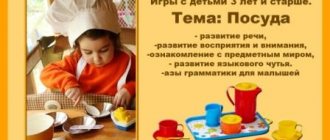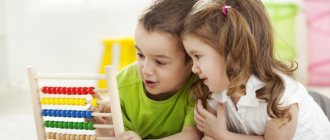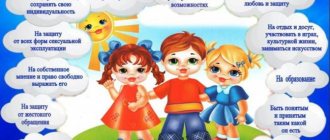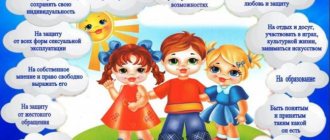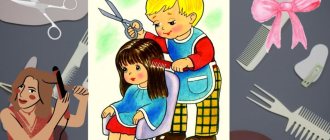To keep your teeth healthy
Bad teeth in preschoolers are a common problem. Therefore, it is important to instill in children the rules of oral hygiene.
The healthy lifestyle game is based on the “yes or no” principle. Ask children questions, and they must answer whether this statement is correct and why:
- You need to brush your teeth daily – morning and evening;
- You can take someone else’s toothbrush if you don’t have your own;
- It’s good to eat a lot of sweets;
- After brushing your teeth, you don’t need to wash the brush;
- If you have a toothache, you should immediately go to the dentist;
- nuts can be cracked with teeth;
- Each family member should have their own brush;
- It is healthy to eat raw vegetables and fruits;
- You need to buy a new toothbrush every 3 months.
Didactic outdoor games for preschoolers Healthy Lifestyle Lifestyle
Didactic outdoor games to consolidate preschool children’s knowledge of healthy lifestyle and lifestyle
SEE ALSO Lesson summary on the topic of introducing children to a healthy lifestyle Memo on developing healthy lifestyle habits Didactic games on valeology Lapbook “Book of Health”
Dangerous-safe
Objectives To teach children to determine the degree of dangerous behavior in everyday life and to make the right decisions. Progress of the game The playing area is divided into two zones: yellow and red (dangerous-safe). Children walk scattered around the playground. At a signal, the children stop, the instructor names everyday situations, the children move to the danger zone according to their ideas, and if necessary, the situations are discussed.
- I play ball on the roadway
- I cross the road in the wrong place
- I play in the sandbox on the playground
- I use someone else's comb
- I use someone else's handkerchief
- I left the site with a stranger
- I cross the road at a pedestrian crossing, etc.
Talking body
Objectives Consolidate children's knowledge about body parts, develop coordination of movements.
Progress of the game Children stand in a semicircle. The instructor calls the kids one by one and gives them a task, for example:
- say yes with your head
- say with your foot that you are unhappy
- say with your hand "come here"
- say “thank you” with your body
- say “I don’t know” with your shoulders, etc.
All children repeat the movement shown, guess what the body is saying
Kinds of sports
Objectives To develop the ability to act together, to consolidate knowledge about sports. Progress of the game Children are divided into two teams, a competition is held
- jumping from hoop to hoop
- crawling on your stomach, pulling yourself up with your arms
- crawling under an arch
- run to the cube, take a card (one team has cards with winter sports, the other with summer sports), run back to the team
The team that wins the competition starts the game: using the pictures, the children conspire and pantomime show the sport, the opponents guess. Then it’s the second team’s turn.
Chain
Task Develop memory, attention, develop communication skills Progress of the game Children are given a topic in advance, for example, “Daily routine.” Children line up in a line. The instructor with a large ball gets up first, begins the story and passes the ball to the next child, “In the morning I woke up early...”, the child continues, for example, “I washed my face,” passes the ball to the next, etc. Themes for the game: “We need to cook soup”, “We are going for a walk”
About hygiene rules
Objectives : Develop healthy habits and reinforce hygiene rules. Progress of the game Children stand in a circle, one child in the center, depicting an arrow, spins around himself, the children say “Stop!”, at whom the hand pointed - the arrow answers the instructor’s question with a pantomime, all the children repeat the movements after him
- what do you do when you wake up in the morning
- how do you wash your face
- how do you brush your teeth
- how do you comb your hair
- how do you do gymnastics
- what do you do before eating, etc.
A variant of the game with older preschoolers: children show what they are doing without leading questions, children guess and show how they do it.
Like in the mirror
Task: To teach to coordinate movements. Progress of the game Children line up in two lines opposite each other, forming pairs. First, one of the pair shows the movement, and the second tries to mirror it, then the second shows his movement.
Line up
Task To teach joint actions using non-verbal means of communication. Progress of the game The game is played to the music. Children walk scattered around the hall, the music stops, the instructor gives different commands:
- line up according to height
- line up first boys, then girls
- line up first girls, then boys
- build through one boy - girl
- build first with dark hair then with light hair
- build first with long hair, then with short
- line up along the length of shorts, etc.
True or false
Objectives: Consolidate knowledge on the topic of health, develop coordination. Progress of the game The presenter - the instructor in the role of a doctor - asks questions, and the guys react to them with conventional gestures, for example, if it’s true, then they jump, if it’s not true, they stomp their feet. Questions:
- It's true that adults don't get sick
- Is it true that you should wash your hands before eating?
- Is it true that you can walk without a hat in winter?
- Is it true that by sneezing on your neighbor you can infect him
- It is true that those who do not ventilate the room become healthier, etc.
Artist
Objectives Consolidating knowledge on the topic of a healthy lifestyle, developing speed and dexterity Progress of the game Children stand in a circle. The leader chosen by the counting rhyme “draws” on the back of the person standing next to one of the household items: a comb, a toothbrush, a towel, a washcloth, a cup, a fork..., the player must guess the item and show the action with this item, all children guess the item and name it if the player managed to correctly show what was drawn, he becomes an artist, if not, the stick is placed between the players, the children run in a circle in different directions, trying to be the first to take the stick. Whoever manages to take the stick first continues the game.
Dangerous or not
To play a healthy lifestyle game, prepare pictures depicting health-hazardous and non-hazardous situations, as well as red, yellow and green signal circles. The players’ task is to determine how harmful the depicted actions are to humans and raise the corresponding label. A red circle means extreme danger, yellow means moderate, and green means no harm. For example:
- reading a book is a non-hazardous situation (green mark);
- coughing near another person – there is a risk of infection (yellow);
- jumping from a great height is a traumatic action (red).
If I got hurt
Didactic games on health necessarily include material that teaches preschoolers first aid skills.
For the lesson, prepare cards depicting methods of treating various injuries. Name the type of wound, and the children must choose the correct cards and arrange them in the order in which they will provide first aid. For example, if you cut your hand, the pictures will be distributed as follows: washing the wound, applying a sterile bandage, going to the doctor.
Healthy lifestyle, valeology, human body. Didactic games, page 2
Didactic manual on healthy lifestyle “How a person works” The main tasks for strengthening the health of children in kindergarten are the formation of their ideas about health as one of the main values of life, the formation of a healthy lifestyle.
Teachers need to teach the child the right choice in any situation, only what is useful. The influence of didactic games on the development of speech of preschoolers with disabilities Olga Alekseevna Sideleva, teacher, MADOU d/s 411, Novosibirsk Formation of lexical and grammatical categories of speech by means of didactic games for preschoolers with disabilities Currently, there is an increase in the number of preschoolers with disabilities.
Publication “Didactic manual on valeology. Lapbook “Mine. »
The manual is intended both for joint activities of children and the teacher, and for independent activities of the child. A laptop is an interactive thematic folder equipped with a variety of pockets, doors, windows, etc. that a child can use.
Didactic games and exercises “Safety of life and health” “Safety of life and health”. Didactic games and exercises. Games allow children to become familiar with sources of danger, precautions when handling potentially dangerous objects, and develop skills and habits of safe behavior. “It is possible - it is not possible” Purpose.
Didactic manual “Path of Health”
Recently, many young children have experienced improper development of the musculoskeletal system. Therefore, from the first days of a child’s life, young parents should definitely think about ensuring that the baby grows up healthy and his foot develops correctly. Everyone's foot.
The article “Speech development of children with disabilities through. "Olga Alekseevna Sideleva, teacher, MADOU ds 411, Novosibirsk "What a child is at play, so in many ways he will be at work when he grows up. Therefore, the education of a future leader occurs, first of all, in play. And the whole history of an individual as an activist and worker can be.
Card index of didactic games on healthy lifestyle Topic: “Child and health” 1) “Arrange the pictures in order” Goal: systematize children’s ideas about health and a healthy lifestyle, develop speech, attention, memory. Material: pictures depicting moments of the daily routine Progress of the game: the teacher says that.
Didactic game with the aim of developing a culture of health in children of the sixth year of life. Didactic game with the aim of developing a culture of health in children of the sixth year of life. The formation of a healthy lifestyle in a preschooler is included in a comprehensive educational program in a preschool institution. As noted above, play plays an important role in the learning process of children.
Source
